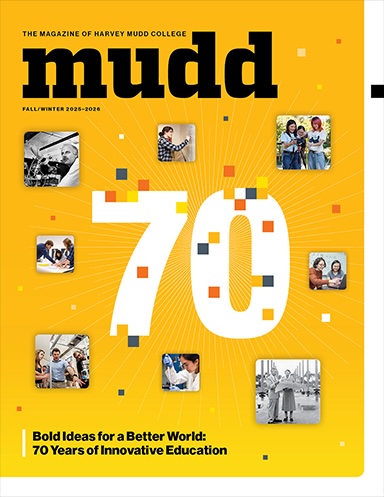Harvey Mudd Faculty Promotions, Summer 2025
June 30, 2025The Harvey Mudd College Board of Trustees approved faculty promotions and appointments, effective July 1.
Promotion to full professor
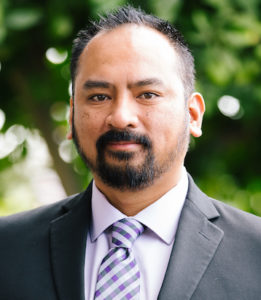
Albert Dato, professor of engineering and associate chair of the Department of Engineering, researches the synthesis and applications of nanomaterials. He directs the Energy and Nanomaterials Lab, which seeks to develop solutions to energy and environmental challenges through applications of advanced materials. Founder and CEO of Graphene LLC, Dato has worked as a scientist at Air Liquide Electronics U.S. and as a process development engineer at Novellus Systems Inc.
The Dato Research Group seeks to develop solutions to energy and environmental challenges through the synthesis and applications of advanced materials. Students in the group conduct research on (1) strong lightweight nanocomposites that could replace heavier metallic components on vehicles to reduce emissions and fuel consumption, (2) advanced membranes that are capable of capturing carbon dioxide, (3) novel materials for storing energy, and (4) superhydrophobic surfaces that can harvest drinking water directly from air. Dato also mentors undergraduate researchers by working closely with the students in the laboratory, holding weekly lab meetings, hosting social activities with the research group, advising students on applying to graduate school and positions in industry and supporting the dissemination of their research results through scientific publications and presentations at national meetings.
Granted tenure and promotion to associate professor
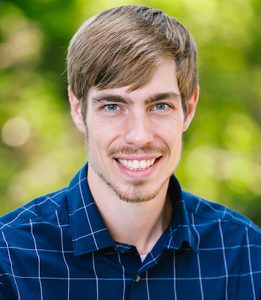
Joshua Brake, associate professor of engineering, leads a research group in biophotonics, a field at the intersection of optics and biology that is increasingly playing a role in biomedical diagnostics and therapies. He teaches across the curriculum with a focus on digital electronics, embedded systems, and optics. In addition to his work in the classroom, Brake is deeply interested in the relationship between technology, education and human flourishing. He explores these themes, with a particular focus on the impact of AI in education, in his weekly Substack newsletter, The Absent-Minded Professor.
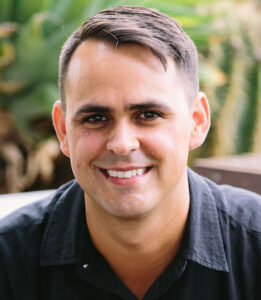
Steven Santana, associate professor of engineering, Joseph B. Platt Chair in Effective Teaching, and Engineering Clinic director, relishes his work with students in all areas of life at HMC. Through research with an amazing group of Mudders in the CuTE Lab, the students, together with Santana, employ a transdisciplinary approach to solve questions with high potential for impact in bio- and biomedical engineering with a focus on cell biology, microfluidics and tissue engineering. Students of all majors have contributed to the work and bring their passion, talent and toolkits from across HMC’s courses to accomplish great things as they work together in community. Santana received a National Science Foundation grant to enhance the understanding of cell communication through extracellular vesicles and a seed grant from the Social Science Research Council’s Sloan Scholar Mentoring Network to fund research on printing biomaterials for tissue-engineering applications. He has taught across the curriculum in design, engineering sciences, systems, and upper-division electives in fluid mechanics and microfluidics. He cares deeply about students’ technical expertise and development as leaders who deeply interrogate the impacts of their work. Toward this end, he devotes his time to deep mentoring of students through his teaching, research and service activities in formal and informal settings.
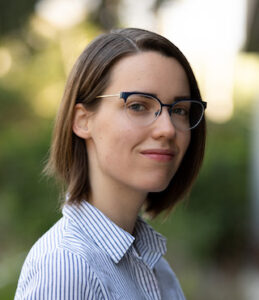
Alexandra (Xanda) Schofield ’13, associate professor of computer science, uses tools from natural language processing to assist in digital humanities and computational social science work. Her teaching goal has been to integrate ethically minded and human-centered material across the computer science curriculum, including designing and teaching a new required course for computer science majors, Computing Practices, Projects, and People. Schofield spent the previous two years supervising the HMC Summer of CS program for undergraduate research, including managing the NSF grant for HMC CS’s Research Experience for Undergraduates site from 2023 to 2025 alongside colleague George Montañez.
Reappointment
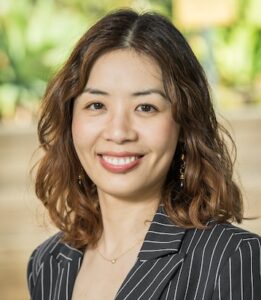
Dede Long, assistant professor of economics, focuses on examining the economic and environmental implications of public and private incentives aimed at promoting ecosystem services. She enjoys working closely with students, helping them understand how economic tools can be applied to address environmental challenges. Long looks forward to mentoring students through collaborative interdisciplinary research. She is part of the project team that secured a $918,485 grant from the National Science Foundation in 2024 to acquire a high-performance computing cluster, significantly expanding research capacity across The Claremont Colleges. That same year, she also received a $799,343 grant from the U.S. Department of Agriculture as a co-principal investigator on a project that develops new economic measurement systems that better reflect the full value of forest ecosystems.
